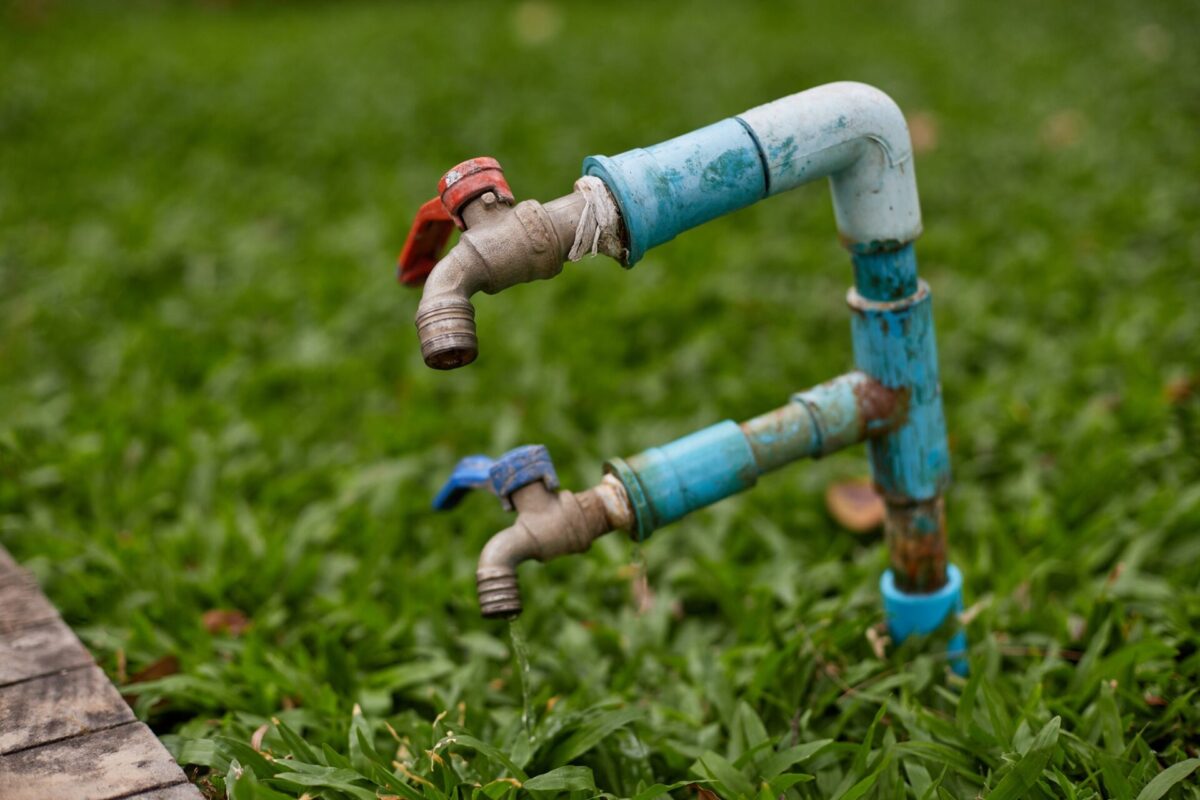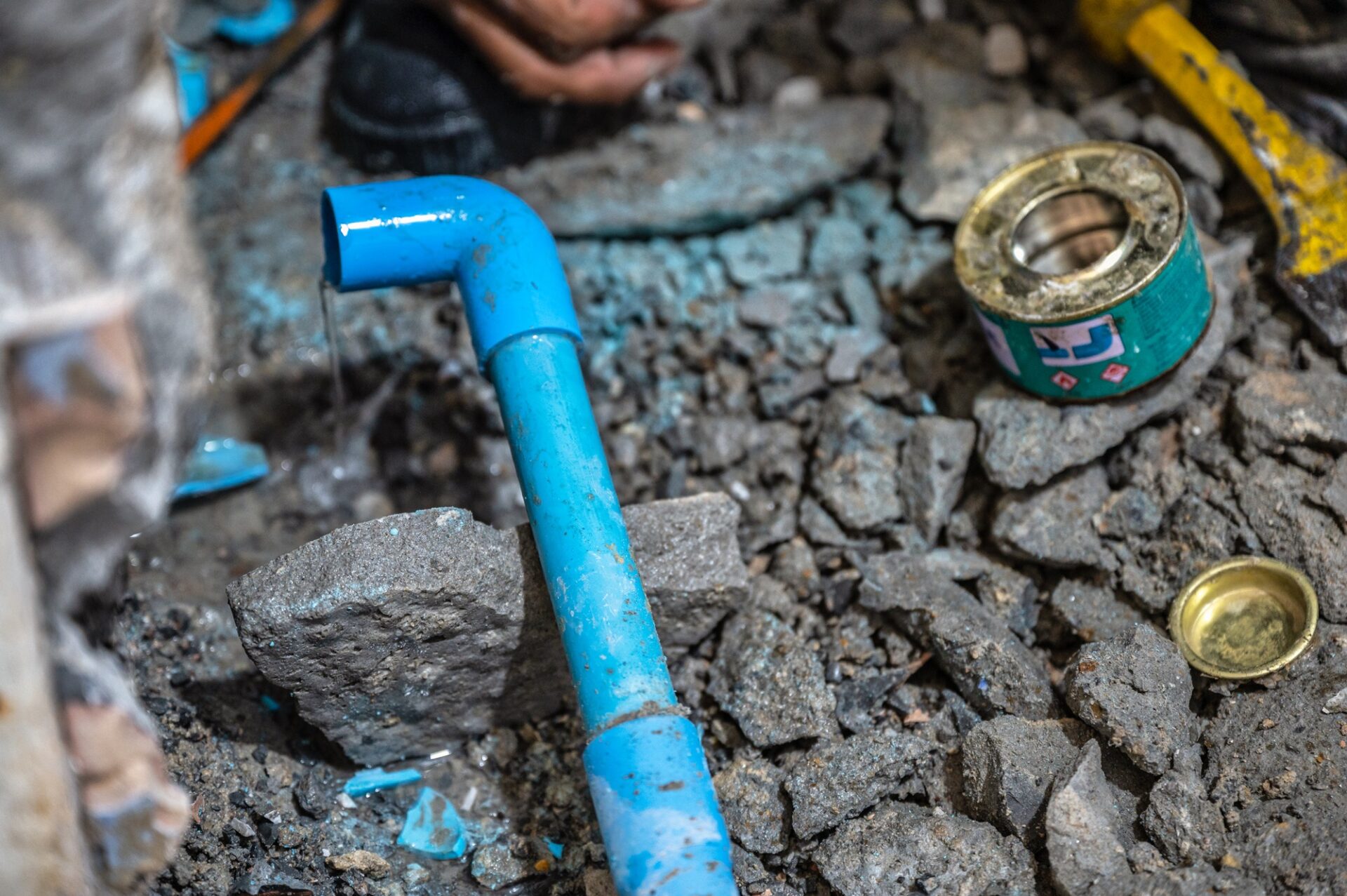Tucson is known for its warm desert climate, but homeowners here still experience cooler temperatures during the winter months. While winters in southern Arizona are far milder than those in other parts of the country, occasional cold snaps can bring freezing temperatures overnight. This often leaves homeowners wondering whether they need to take steps to winterize outdoor plumbing, or if that’s something only necessary in colder regions.
The purpose of this blog is to clear up that confusion. We’ll look at Tucson’s unique winter conditions, the potential risks to your plumbing, and the simple steps you can take to protect your outdoor pipes and fixtures. By the end, you’ll know whether winterizing is truly necessary for your home and how to prevent costly plumbing problems when the temperatures drop.
Understanding Tucson’s Winter Climate and When to Winterize Outdoor Plumbing
While Tucson is famous for its sunny, warm weather, winter temperatures can still dip significantly, especially at night. On average, daytime highs in the winter months range from the mid-60s to low 70s °F, while nighttime lows can fall into the 30s and 40s. Although these temperatures are mild compared to northern states, they are cold enough to potentially affect outdoor plumbing.
Occasional freezes do occur in Tucson, particularly during cold snaps in December and January. Even a single night of subfreezing temperatures can cause outdoor pipes, spigots, or irrigation lines to freeze and expand, which may lead to cracks or bursts if precautions aren’t taken. Homeowners often underestimate the risk because freezes are infrequent, but the damage from even a short freeze can be costly.
It’s a common misconception that desert climates are completely safe from winter plumbing issues. While Tucson’s winters are generally mild, the combination of cold nighttime temperatures and exposure to wind and sun can stress pipes, especially those that are older or poorly insulated. Understanding these risks helps homeowners take the appropriate preventive measures without overreacting to the occasional cold spell.
Risks of Not Winterizing Outdoor Plumbing
Even in Tucson’s mild winter climate, outdoor plumbing is not immune to damage. When temperatures drop during a cold snap, water in exposed pipes can freeze. As water freezes, it expands, increasing pressure inside the pipes, which can lead to cracks or even bursts. A burst pipe can cause serious disruptions and require immediate repairs, making winter precautions important even in warmer regions.
Outdoor fixtures such as faucets, hoses, and irrigation systems are particularly vulnerable. Hoses left connected to spigots can trap water, increasing the risk of frozen and damaged pipes. Similarly, irrigation lines and sprinkler systems that remain full of water during freezing nights may develop leaks or breaks, leading to costly repairs when the weather warms up.
The financial impact of ignoring these risks can be significant. Water damage from a burst pipe or leaking outdoor fixture can affect landscaping, patios, and even the foundation of your home. Beyond repair costs, homeowners may face higher water bills and the inconvenience of emergency plumbing services. Taking simple preventive measures can save both money and stress in the long run.
Do Tucson Homeowners Really Need to Winterize?
For most Tucson homeowners, full-scale winterization like you’d find in colder regions isn’t usually necessary. The city’s winters are generally mild, and extreme freezing events are relatively rare. This means you likely don’t need to take extensive measures such as draining your entire plumbing system or installing elaborate insulation.
However, even in mild climates, taking precautionary steps can prevent unnecessary plumbing problems. Simple actions like covering outdoor spigots, disconnecting hoses, and draining irrigation systems can significantly reduce the risk of frozen pipes and water damage during the occasional cold snap. These minor steps provide peace of mind and help avoid costly repairs.
Certain situations call for extra care. Homes at higher elevations or those with outdoor plumbing exposed to wind and shade are more susceptible to freezing. Vacation homes or properties left unattended during the winter months are also at higher risk, as frozen pipes may go unnoticed until damage occurs. In these cases, implementing preventive measures—or consulting a professional plumber—can save time, money, and stress.
Simple Winterization Steps for Tucson Homes
Even though Tucson winters are mild, taking a few simple winterization steps can protect your outdoor plumbing from damage. One of the easiest precautions is to disconnect and drain garden hoses. Leaving hoses connected can trap water in outdoor pipes, increasing the risk of freezing and cracks during cold nights.
Covering outdoor spigots with insulated covers is another effective step. These inexpensive covers provide a layer of protection against chilly winds and occasional freezes, helping to prevent pipe damage and costly repairs.
If you have an irrigation system, be sure to drain and shut it off if it won’t be in use during the winter months. Standing water in sprinkler lines can freeze, leading to leaks or broken pipes when temperatures drop unexpectedly.
Finally, take the time to inspect outdoor pipes and fixtures for any cracks, wear, or signs of corrosion before the cold weather arrives. Addressing minor issues early can prevent more serious damage and ensure your plumbing stays in good condition throughout the winter season.
Professional Help for Added Protection
While many winterization steps are simple enough for homeowners to handle, there are times when professional help can provide added protection. If your outdoor plumbing shows signs of wear, your home is at a higher elevation, or you want to ensure everything is properly prepared for the occasional freeze, calling a licensed plumber for an inspection is a smart choice. A professional can identify potential vulnerabilities that may not be obvious to the untrained eye.
Having a plumber evaluate your plumbing offers several benefits. Professionals can provide targeted solutions to prevent frozen or burst pipes, recommend insulation for exposed lines, and ensure irrigation and outdoor fixtures are safely winterized. By taking these precautions, homeowners can avoid costly repairs, reduce water waste, and enjoy peace of mind knowing their plumbing is ready to withstand Tucson’s winter conditions.
Contact Code Blue Plumbing to Winterize Your Plumbing
Tucson’s mild winters mean that extreme winterization isn’t usually necessary for most homes. However, taking a few simple preventive steps—like disconnecting hoses, covering outdoor spigots, draining irrigation systems, and inspecting pipes—can save you from costly repairs and unnecessary stress when temperatures drop unexpectedly.
If you want added peace of mind, Code Blue Plumbing can help. Our team offers professional inspections and winter-prep services to ensure your outdoor plumbing is protected, no matter what Tucson’s winter brings. Contact us today to keep your home’s plumbing safe and worry-free.


